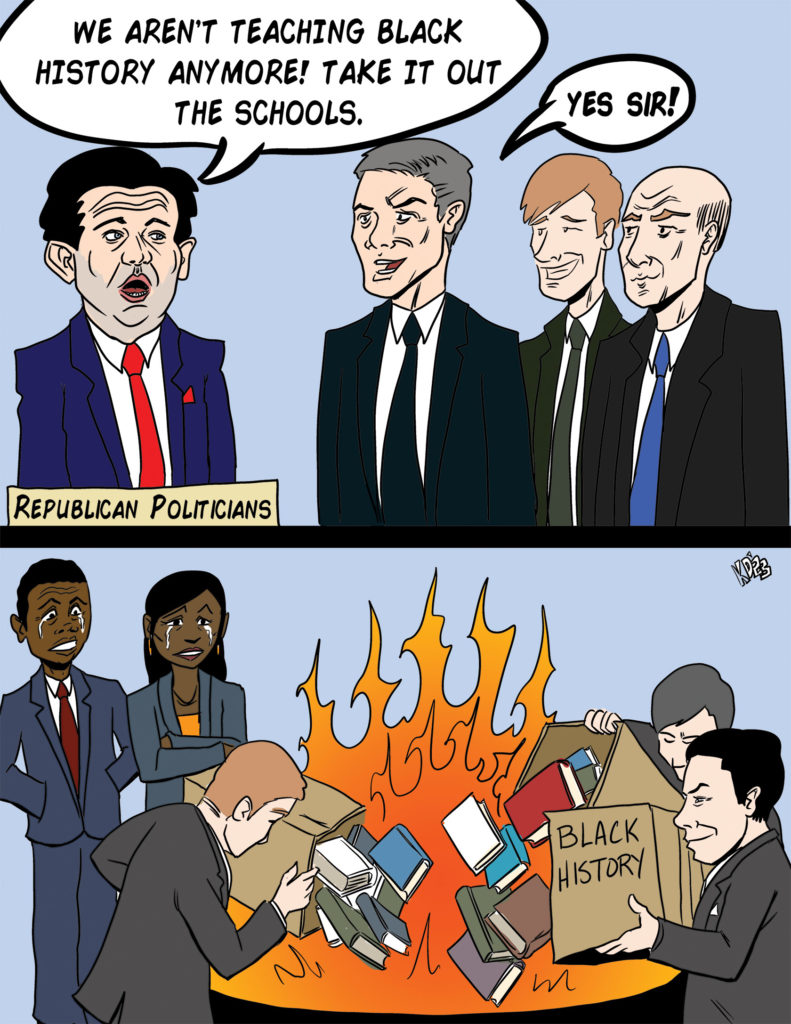
On Feb. 28, André Stark and I completed our year-and-a-half-long effort to purchase this historic Bay State Banner. It was the last day of Black History Month, a fact not lost on the two of us. As I thought about it, it reminded me how important it is to teach and celebrate our country’s sometimes painful history. To remember the pain and, equally as important, to celebrate the joy of our Black American history, our American history.
History is the way that we remember and come to understand past mistakes, so we don’t repeat them. Our American history, our Black history, isn’t always easy to remember. It is filled with oppression, turmoil, hate and self-loathing. But the future is what we make it.
We must embrace our true Black American history. We must choose to teach our children who we were, where we came from and who we grew into, becoming a better nation. But many in our society are pushing to remove true representations of African American history from our education system. That would mean no longer educating the American people.
If our colleges and K-12 schools bow down to those folks who want to hide the often-painful reality of our past, they will only remove the healing power that self-reflection provides. Real healing only comes when you face the pain of your mistakes and resolve not to repeat them. To try to sanitize history, to make it less painful, will eliminate the healing power that real self-reflection provides. Forgetting the violence that we perpetrated on each other so we can feel less guilty about our past will only continue to perpetuate the racism we claim that we are trying to overcome.
The 1619 Project and many other accurate but painful representations of our past offer us the unique opportunity to face our shortcomings and understand what motivated the injustice and stoked the oppression in the first place. Studying our real history illustrates the path we took to create a better but still imperfect nation. It allows us to understand the worst of ourselves and our past so we can become a still better nation. We as a nation cannot afford to bury the truth.
The decisionmakers in higher education must not give in to this misguided crusade to run from the truth.
The path our nation needs to follow is called truth and reconciliation. You cannot have real reconciliation without first exploring the painful truth about yourself. We will never grow as a nation until we explore the injustices of our past. Pretending they didn’t exist or burying them like some deep-rooted shame will only guide us back to our worst days.
The deep-seated racism and hatred of our past lingers in the shadows. It’s only when we turn on the floodlights of truth and expose it for everybody to see and understand that we as a civilization heal. Running from problems has never solved anything. Facing the often-painful truth about our past as a nation is the way for us to overcome it together to make an even better nation.
When I was a child in first grade, my teacher taught me one of life’s most valuable lessons: Never run from or give in to bullies; it only empowers them. It seems that’s a lesson that the College Board, which shapes Advanced Placement coursework, and other higher education bodies need to remember. If not, they will end up empowering the bullies and encouraging them to promote the fear of “the other,” a fear that stokes the hatred that created the oppression in the first place. It’s not that hard a concept to grasp. As philosopher George Santayana said, “Those who do not learn history are doomed to repeat it.” That is a fate, I’m sure we can all agree, we must not allow to happen.
A note of thanks
As The Bay State Banner moves into a new phase, we at Mitchell Stark Enterprises want to thank the many prominent members of Greater Boston’s Black community who stepped up by providing private investment and financial support to make our purchase of the newspaper possible. They believed in the importance of this historic Black community institution and the service it provides to our commonwealth. Without your participation, this venture would not have been possible. We want to thank all of you for your stalwart commitment to your community.
Darryl Settles, Catalyst Ventures Development, Robert Johnson Jr., Trecia and Phil M. Reavis Jr., John Jenkins, Charlie Titus, Titus Foundation Inc, Patrick Targete, Herby Duverné, Dr. Juanita Shell-Peterson, Mark and Seema Williams, Michele Courton Brown, The Redd Brothers III, Mill Cities Community Investments, Dorchester Bay Economic Development Corporation, Nutter McClennen & Fish LLP







